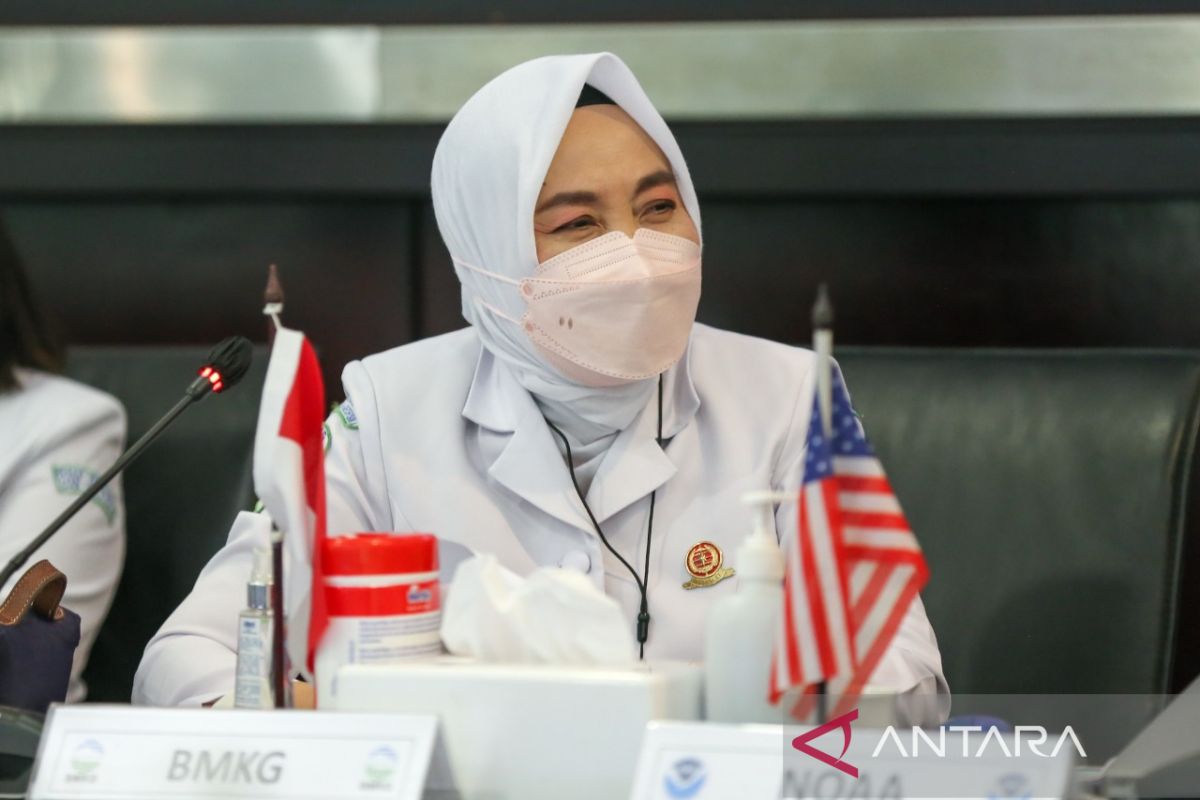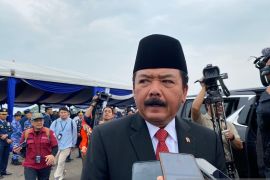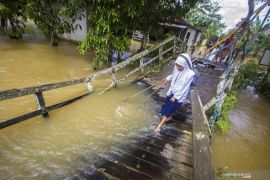Triple Dip La Niña is a unique phenomenon, she noted during the Mini Symposium 17th Annual Indonesia – U.S. BMKG – NOAA Partnership Workshop held virtually on Friday.
The public, central government, and regional governments should be wary of wet hydrometeorological disasters, such as floods, strong winds, extreme weather, and landslides.
Karnawati explained that this phenomenon started in the mid-2020 and is estimated to continue until the end of 2022 and potentially even the start of 2023 due to which it is named Triple Dip.
This phenomenon had earlier occurred from 1973 to 1975 as well as from 1998 to 2001.
This phenomenon will affect the weather and climate patterns in Indonesia, including causing half of the Indonesian territory to experience early rainy season.
Karnawati called to especially be alert for diseases that usually emerge during the rainy season, such as diarrhea, dengue fever, leptospirosis, acute respiratory infections (ARI), and skin diseases.
La Niña is a phenomenon that concerns the cooling of sea surface temperature (SST) in the central and eastern part of the Pacific Ocean under normal conditions.
Moreover, the cooling of SST in the Pacific Ocean is then followed by the warming of SST in the Indonesian waters, thereby intensifying the growth of rain clouds and increasing rainfall in Indonesia in general.
Karnawati also noted that the La Niña weather pattern is one of the three phases of the El Niño Southern Oscillation (ENSO).
This refers to the SST and direction of the wind in the Pacific that can oscillate between the warm phase called El Niño, colder phase called La Niña, and neutral phase.
La Niña phenomenon increases rainfall in several places in Indonesia, though the impact of La Niña is never the same since it is affected by other factors.
Translator: Fitra Ashari, Fadhli Ruhman
Editor: Sri Haryati
Copyright © ANTARA 2022












